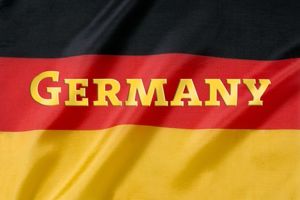- Profile
- Images
Location: [unknown]
Surname/tag: Germany
This page is part of the Germany Project
Contents |
Welcome to the Germans from Russia Team Page
- Chief team leader: Rob Neff
Our focus is on the Germans who lived in Russia, and their descendants, including the many that emigrated to Canada, the United States, and South America (often called “Germans from Russia”). While in Russia they lived largely in all-German villages focused primarily on agriculture, retaining their German language, religion and culture.
There were also some Germans, mostly in the skilled trades and upper class, living in St. Petersburg and Moscow since the time of Peter the Great, but they were fairly small in number.
TO PARTICIPATE, PLEASE JOIN ONE OF OUR SUB-TEAMS, below.
Sub-Teams
- Volga Germans - Team Leader: Russ Gunther
- Black Sea Germans Team - Team Leader: Carrie Lippincott
Information Page
- Volhynia (was previously a team)
History
Catherine the Great, the Czarina of the Russian Empire from 1762 to 1796, was actually born into German royalty in 1729. After marrying Peter III, she eventually deposed him and became the longest reigning woman in the history of the Russian Empire.
The Russians had been steadily expanding their territory, and Catherine the Great continued this, gaining lands that reached the Black Sea. This area of the Western Steppe needed farmers, and Catherine knew where to find them - her fellow Germans. They were industrious and could learn the dryland technique of farming that was needed to grow wheat, sugar beets and other crops in the open grasslands. She promised them villages, where they could settle as a group, often coming en masse from the same district of Germany, speaking the same regional dialect. Each village would have its own religion, typically Lutheran, Catholic or Mennonite. There were some Jewish colonies as well. Each village would have its own church and school, and Germans would be exempt from serving in the military. This was especially attractive during the Napoleonic wars.

|
| Germans in Russia |
In 1783 the Russian Empire gained control of the Crimean peninsula. By 1803 Germans were establishing colonies here as well.
Eventually conditions for Germans in Russia deteriorated. Exemption from the military was dropped, there was general unrest in Russia due to changing laws on the serfs and peasants, and rising land prices. Large scale emigration to North and South America in particular took place from the 1870s to 1917.
After the Russian Revolution, conditions got worse, particularly with the two World Wars. Stalin persecuted the Germans in his own country, thinking they were sympathetic to the German side. People were arrested, sent to work camps, and often killed. In the early 1930s, a forced starvation (Holodomor) took place among the Germans, Ukrainians and other non-Russian ethnic groups in the Ukraine, Crimea and South Volga region. Soviet leaders claimed there were crop shortages, and likely millions of Russian subjects died of starvation. It is said that Stalin exported grain during this time to pay for the building of their massive subway system in Moscow, with cathedral-like rooms and magnificent chandeliers.
Germans that survived this period were deported to Kazakhstan, Tajikistan, or Siberia. Families were often split up, the German churches razed or turned into barns, and gravestones used for paving blocks.
- History of Germans from Russia GRHS (ndsu.edu)
Emigration
Heavy emigration of Germans from the Russian Empire to the U.S. and Canada took place from the 1870s to early 1900s. Mennonites started first, as they were pacifists and the Russian Empire took away the Germans’ right to not be conscripted to the military. After the 1917 Russian revolution, emigration was essentially stopped, and many living in the west lost contact with family members still in Russia.
Many of the areas that these Germans from Russia settled in - Kansas, the Dakotas, Manitoba, etc. were quite similar to conditions they knew in Russia - vast open spaces with modest rainfall. Their dryland farming techniques worked well here. In 1910, 5% of the population of North Dakota had been born in Russia, and most were Germans. They did not see themselves as Russians, but their experiences were much different than Germans who came directly to the U.S. They tended to form tight-knit communities, and kept their German language as the main language until the 1940s and 1950s.
After the reunification of Germany in 1991, some Germans living in Russia moved back to Germany, even though in many cases their ancestors had left the country 200 years before. Many of those born after WWII did not speak German, and often those that did spoke a dialect no longer used in Germany.
Notable Germans from Russia
Partial list, including children and grandchildren of German emigrants from Russia.
- Lawrence Welk (bandleader)
- Thomas Daschle (U.S. Senator)
- John Denver (Deutschendorf) (singer)
- Brian Schweitzer (Governor of Montana 2005-2013)
- Angie Dickinson (actress)
- Karl Stumpp (Ethnographer and German-from-Russia researcher)
- Pyotr Schmidt (Captain in Russian Navy, leader in Sebastapol Uprising)
- Horst Köhler (President of Germany 2004-2010)
- Janet Wentz (Speaker of the House for North Dakota 2002-2003, House of Rep. 1974-2003)
- Anna German (Polish singer)
- Boris Rauschenbach (Soviet physicist, rocket engineer)
- Andreas Wolf (German football player and coach)
- Josef Alois Kessler (Archbishop of Tiraspol)
- Franz Schiller (Soviet literature professor)
Resources
- SGGEE.org: The Society for German Genealogy in Eastern Europe - focuses on the genealogy of Germans from Russian Poland and Volhynia
- Germans from Russia Church Records - Family Search
- Germans From Russia Genealogical Research Outline - PDF from BYU
- Login to edit this profile and add images.
- Private Messages: Contact the Profile Managers privately: Rob Neff and Germany Project WikiTree. (Best when privacy is an issue.)
- Public Comments: Login to post. (Best for messages specifically directed to those editing this profile. Limit 20 per day.)


https://www.wikitree.com/g2g/1553963/wikitree-challenge-register-research-american-historical